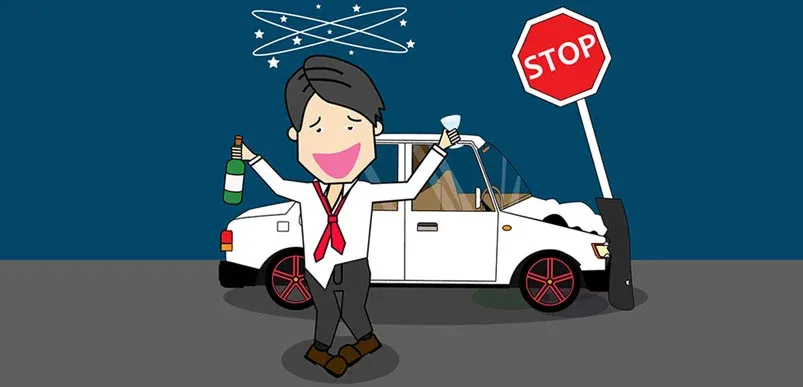Key Takeaways
- Understanding the dangers and legal implications of drunk driving.
- Exploring practical strategies to prevent drunk driving incidents.
- Recognizing the importance of community initiatives in reducing accidents.
- How technology may improve traffic safety.
- Comprehending how legal representation can assist victims of drunk driving accidents.
Table of Contents
- Understanding the Dangers of Drunk Driving
- Practical Strategies for Prevention
- How Community Initiatives Help
- Role of Technology in Road Safety
- Legal Representation for Accident Victims
- Providing Support to Victims
Understanding the Dangers of Drunk Driving
Drunk driving is not merely a personal choice; it’s a perilous act that endangers lives. Worldwide, it is a leading cause of traffic-related injuries and fatalities. Drunk drivers have impaired judgment, which can cause poor decision-making in split-second situations. Their vision, balance, and muscle coordination capabilities are compromised, increasing the likelihood of collisions. Every year, millions of people are directly affected by such accidents, either as victims or as part of their social circles, motivating a call to action from individuals and communities alike.
Despite solid legal measures and societal condemnation, drunk driving persists as a critical issue, underscoring the role of DUI accident attorneys in addressing its legal aftermath. The human cost extends beyond immediate injuries, as survivors and families often deal with long-term consequences, including emotional distress, loss of income, and diminished quality of life. Awareness is the foundation of prevention, fostering a society where accountability and safety are paramount.
Practical Strategies for Prevention
Prevention strategies hinge on simplicity and responsibility. Designated drivers stand as a frontline defense against the dangers posed by alcohol-impaired individuals behind the wheel. For example, contemporary solutions like ride-sharing services offer practical, accessible alternatives to personal transportation during social outings. As these services become entrenched in urban infrastructure, they encourage a widespread culture of accountability and safety.
Responsible hosting is also crucial in private settings. Offering guests non-alcoholic beverages, providing overnight accommodation, or arranging safe rides are strategies that promote safety. Establishments that serve alcohol can further the cause by implementing reward systems for patrons who choose not to drive after drinking, reinforcing a positive societal shift towards safety.
How Community Initiatives Help
Community initiatives play a vital role in spearheading anti-drunk driving campaigns. Organizations like Mothers Against Drunk Driving (MADD) have been instrumental in advocating for stronger laws and providing support to affected individuals. Their work in communities nationwide offers preventive education and compassion to those impacted.
Through organized events and educational programs, these initiatives foster a collective commitment to drive change. Collaborative efforts between schools, law enforcement agencies, and civic organizations cultivate an environment where safe driving is actively promoted and supported. This community-driven advocacy emphasizes that preventing drunk driving is a shared responsibility.
Role of Technology in Road Safety
Technological advancements are crucial in the battle against drunk driving. Devices such as ignition interlocks ensure drivers cannot operate vehicles if alcohol is detected in their breath. These innovations serve as deterrents, directly preventing impaired individuals from risking their lives on the road.
Moreover, car manufacturers continuously improve vehicle safety features like automatic emergency braking and lane-keeping assist systems. These technologies assist in mitigating accidents and serve as a secondary line of defense beyond human intervention. Resources like the National Highway Traffic Safety Administration (NHTSA) highlight the transformative impact of technology in fostering safer roads. Empowering drivers with these tools amplifies safety and underscores the critical role of innovation in reducing drunk driving incidents.
Legal Representation for Accident Victims
After an incident, victims frequently have to navigate a difficult path to justice and healing. Effective navigation of the legal terrain necessitates advice and experience. Upholding accountability and defending victims’ rights require the assistance of attorneys who specialize in drunk driving cases.
Through diligent representation, they help secure compensation for damages and ensure that offenders are adequately penalized. This pursuit of justice not only aids in victim recovery but also reinforces societal norms against drunk driving, deterring future offenses.
Providing Support to Victims
The effects of a drunk driving accident go beyond material losses; those involved frequently bear psychological and emotional costs. For survivors and their families to absorb trauma and start the healing process, support networks are essential. While community support groups offer a forum for sharing experiences and encouraging one another, counseling and therapeutic services provide essential mental health assistance.
Nurturing these networks fosters resilience and facilitates recovery, emphasizing the importance of a compassionate response to tragedy. By empowering victims through comprehensive support, society can better cope with the aftermath of drunk driving incidents and work towards a future where such events are rare.






